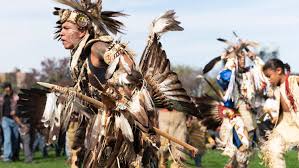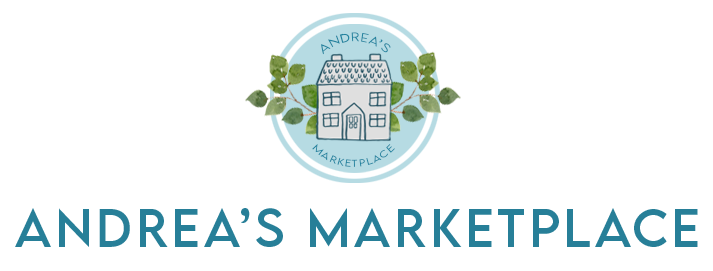Although Indigenous Peoples’ Day and Columbus Day are celebrated on the same day every year (the second Monday in October), they are not the same event under a different name. They are two distinct holidays with different historical roots.
Indigenous Peoples’ Day has been observed more frequently lately in place of Columbus Day, including on the official calendars of several state governments, institutions of higher learning, corporations, and other organizations. There are also requests to declare it a federal holiday in the US.
These developments and the discussion of them in the public discourse are a part of a larger effort to address the history of Indigenous Peoples in the Americas and elsewhere that has frequently been disregarded and marginalized. Their rich and enduring traditions are included in this history, as well as the systematic oppression and acts of extermination they have experienced since white European colonization of the Americas began with Christopher Columbus’ arrival in 1492.
Columbus was Italian, yet he sailed for Spain. The history, culture, and accomplishments of Italian immigrants and persons of Italian origin in the US are traditionally honored on Columbus Day among some Italian Americans. Since at least its 300th anniversary in 1792, the anniversary of Columbus’s arrival has been marked in some way, but it wasn’t until 1937 that it was declared a federal holiday by presidential proclamation (partly as a result of the efforts of Italian Americans, including members of the Catholic fraternal organization Knights of Columbus). In 1968, it was declared a federal holiday.
Because it was long believed that Columbus was the first European to set foot in the Americas, he was revered as the “discoverer of America” for many years. Leif Erikson Day is a holiday honoring the Norse navigator, who is thought to have arrived in North America approximately 1000 CE.
Furthermore, the term “discovery” and similar terms are now frequently criticized for implying that Columbus discovered uninhabited lands, when in reality, the so-called “New World” was already inhabited by millions of people who had been living there for thousands of years and was home to numerous diverse civilizations.
Columbus’ arrival is important historically, nevertheless. It marked the beginning of a period of colonialism and oppression of Indigenous Peoples, which was later continued—often on an official basis—by the governments of the US and Canada. As a result, many Indigenous People perished, were ejected from their lands, lost their cultures, and had their ways of life destroyed.

Due to this history and Columbus’ active role in it, especially his violence against and enslavement of Indigenous people, many Native Americans started protesting Columbus Day in the 1980s. The demands for a holiday honoring and celebrating Indigenous Peoples coincided with these demonstrations.
What is National Indigenous Peoples Day?
The US holiday known as Indigenous Peoples’ Day honors and celebrates the history and culture of the Indigenous Peoples of the Americas. (In Canada, June 21 is National Indigenous Peoples Day, which is a comparable but distinct holiday.)
The first widely publicized calls for a day honoring Indigenous Peoples came from Indigenous leaders in the 1970s. Among the first times that Columbus Day was replaced with a day honoring Native Peoples occurred in South Dakota in 1990. In 1992, Native Americans in California organized a day known as Indigenous Peoples Day in opposition to plans to celebrate the 500th anniversary of Columbus’s landing in the Americas. Indigenous Peoples’ Day has since been adopted as an official observance in many states (either as a replacement of or alongside Columbus Day).
An greater emphasis on the term “Indigenous” has coincided with an increase in awareness of and celebration of Indigenous Peoples’ Day. However, what does the term “indigenous” signify and how should it be used?
Meaning of the term “indigenous”
The word “indigenous,” when spelt with a lowercase i, indicates “originating in and characteristic of a particular region or country.”
The term “indigenous” was first used in English around 1650 and is derived from the Latin word indigena, which means “native” or “original inhabitant.” Its foundation is made up of roots that literally mean “born in.”
The word “native” is used in this general sense interchangeably. When referring to the original inhabitants of a location, the capitalized adjective sense of the word Native, such as it is used in Native American, can typically be used interchangeably with the capitalized form of Indigenous (depending, of course, on what those people prefer to call themselves or be called).
However, the noun form of Native has fallen out of favor and may now be associated with derogatory terms like savage and primitive.
When referring to the original, earliest known residents of a place or their descendants, the phrase “Indigenous” is now frequently capitalized. For instance: She studies the indigenous languages of North America, or the Indigenous Maori of New Zealand have a rich culture.
Although style manuals may vary, capitalizing Indigenous gives the identification the respect it deserves—an identity that is unique from others in a certain way. The use of initial capital letters for many other ethnic groups and national identities, such as Hispanic, is consistent with the practice of capitalizing Indigenous. (Like we do for the word Black, Dictionary.com capitalizes Indigenous throughout the dictionary when it refers to identity in this way.)
The word “peoples” is increasingly capitalized when referring to Indigenous Peoples since it designates particular communities rather than people in general.
There are many different indigenous peoples.
Indigenous is possibly the most frequently used and accepted phrase to describe the original inhabitants of a land in general. Many people, however, prefer to refer to themselves by the name of their tribe or country, such as Diné for the Navajo people or Inupiaq for the Indigenous people of Alaska, even if many Indigenous tribes and nations do recognize and utilize general phrases like Native Americans or Indigenous Peoples.
Many people don’t know (or don’t take into consideration) what Indigenous people wish to be called, which is one of the more pernicious ways Indigenous Peoples are wiped from history and culture. Every Indigenous community, as well as every member inside it, has a unique, complicated identity. It is crucial to avoid the propensity to group people together in ways that neglect these particular identities in order to prevent erasure.
It’s crucial to put in the effort to learn the language that particular people use for themselves, as with all identities. By doing this, we can gain a deeper understanding of the rich culture and history of groups like the Yup’ik (Native Americans from Alaska) or understand the distinctions between the Lakota, Nakota, and Dakota peoples—collectively known as the “Sioux.”
Many different names have been used by and for the original people of areas and their descendants throughout history and around the world. The acceptance of and preferences for these terminology have changed over time and continue to do so.round the world and throughout history, a variety of different names have been used by and for the original inhabitants of places and their descendants. The preferences around and the acceptability of these terms has evolved over time—and remains in flux.
Listed below are a few of the general phrases used to describe Indigenous Peoples. In every instance, a lot of people also use—or prefer to use—more specific identifiers based on their unique tribe or community.
The United States’ primary landmass is home to several hundred Native tribes. There are many diverse Indigenous Peoples in the US, and each group has various preferences for how they identify. Preferences might even vary within a same community. The most widely used broad categories include Native American, American Indian, and Indian.
Indigenous Peoples of Alaska commonly use the term Alaska Natives. Indigenous Hawaiians often use the term Native Hawaiian. Those from US territories such as Guam and American Samoa often use the term Pacific Islander.
The phrase “Native American” is perhaps the one that refers to all Native Americans in the United States. Despite its historical inaccuracies, the term “Indian” continues to be used to refer to some Indigenous people, who wish to identify in this way and see it as a part of who they are. However, some find it offensive or just prefer another term.
Inuit, Métis, and First Nations (or Indians) are three words used in Canada to refer to various Indigenous communities. For instance, there are at least 50 different languages spoken by the more than 630 First Nations in Canada.
In Canada, Indigenous Peoples have increasingly being used in place of Aboriginal Peoples in recent years.
In Australia, the terms Indigenous Australians and Aboriginal Australians are both common.
The terms “Aborigine” and “Aboriginal,” when used as nouns to describe an Indigenous Australian, are outmoded and frequently unpleasant. When referring to Indigenous people, the adjective Aboriginal is frequently preferred, as in the case of the Aboriginal Australians of Melbourne and Sydney.
